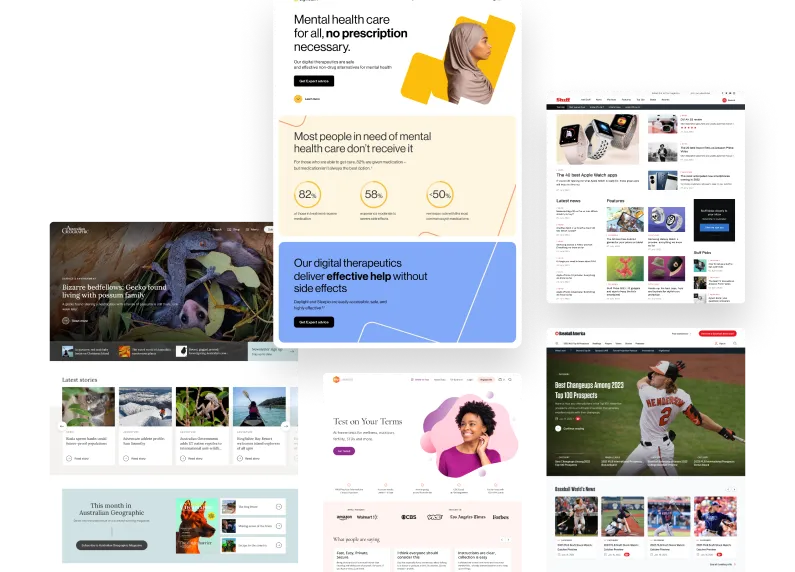What is next for the future of WordPress? Hear from one of the biggest influencers in WordPress, Chris Lema of LearnDash, Nexcess, and Liquid Web.
Together with host Amit Sion, they explore what it takes to navigate an idea to become a reality. Here’s the legendary debut of Season 3 of the XWP Tonight Show!
Transcript:
Amit
If you’ve been to any major WordPress event you will know the name of my guest Chris Lema, one of the most influential people in our industry. Chris is also the Vice President of Products at LiquidWeb. LiquidWeb provides fully managed cloud and web hosting.
What’s their uptime? 99.999%, 24/7.
Welcome everyone. Chris, welcome to the show.
Chris
Great to be here. How are you doing?
Amit
I’m very well and so excited to have you on the show.
Chris, I’ve gotta say I’ve heard that LiquidWeb provides reliable and highly performant site hosting for success. It’s doing something right. What makes LiquidWeb stand out from the crowd?
Chris
I think it’s all about focus, right? It’s who they’re trying to work with. The hosts that are anchored in what worked 10 years ago get stuck back with the kinds of websites that they could host 10 years ago, which were your regular websites. But today, online courses, e-commerce, and membership sites all require people to be logged in. That means that your infrastructure can’t just be a nice layer of cache. You have to be thinking about interactive people logging in, and it still being really performant. I think the LiquidWeb and the Nexus infrastructure is designed for that kind of site. By focusing on that kind of site, it allows us to bring different kinds of features to the market.
Amit
I love that you’ve got that recipe for success and it’s working and you’re just keeping that focus on it.
With our engagement with XWP and LiquidWeb, earlier this year you actually wrote my favorite tweet of 2021 and I’ve got it here. Steps to falling in love. Step one: have a product idea. Step two: talk with XWP about it for a couple of weeks. Step three: have their design team do up a UI. Step four: fall in love. You’re gonna love this too. Can you please tell us about your engagement XWP and some of the work that we’re doing together?
Chris
So I had this idea for a problem that I felt needed to be solved and one of the things that we know in the WordPress and hosting ecosystem is that often the hardest ideas are not attacked because they’re just too hard. Most people just go for the simple stuff and I decided I didn’t want to do that. When I joined LiquidWeb we went right away, okay, how do we solve plugin updates so that we can automatically update a plugin without a customer having to be involved, which would require us to make copies of the site and take pictures and do visual comparison. We built it and I said this is a problem that existed for eight years and no one ever solved it. I go, that’s the one I want to solve.
We did image compression because no one had done it and we’re like, why aren’t the hosts solving this problem? We know the source of the problems, let’s go solve them. So the third idea, after image compression, visual comparison, and plugin updates was I want to be able to diagnose which plugin is causing a performance delay on your website, which, as you can imagine, is incredibly complex.
So I pitched it five years ago, four years ago, and three years ago. I’ve been telling this story inside the company and the more we talked about it, the more people started going, “that could be interesting but that’s really really hard.” I go okay, I get it, like when you’re in a company where the resources and the engineers are busy running off and solving different problems because at the core, it’s still a hosting company, and they’re thinking about DevOps. Part of what you have to do is convince an executive team that you could just take this product outside, you could take the effort to someone outside.
So I had written it up. I had put a budget around it. I had an idea of how I thought about it and I brought that to XWP and said here’s what I’m trying to do. You know, we had several conversations where I was convinced that before the project was started that XWP could actually solve this. They had not just the technical chops. There’s a lot of smart people out there and there’s a lot of agencies that do really smart work out there. It was really a question of, did they have the right experience base?
And XWP, you guys had done so many different things in performance that this kind of performance analysis wasn’t suddenly like, we’re gonna have to take nine months and do this. So I sat down with your team. We talked about it and right away the team was like, “oh, we can do this, we can do this.” I was like okay now, shape it because I don’t want to turn this into a two year project. So we scoped it down, and got really crisp on what we wanted.
Then we went after it and the team designed it, the look and feel of how we would present this information. We started working through the algorithms, and then we built it and deployed it recently and it’s been absolutely fantastic.
Amit
And what we really appreciate is that we smashed it together. We got a great result and we’ve got an ongoing engagement because the XWP team love working with you and love the ideas that you bring into the web. And I guess it’s been clear to us, the entire team in the time that we’ve worked together, that you and your team sincerely care about giving customers of LiquidWeb a better experience. You’re innovative and passionate about what you do. What do you think WordPress will be like in 10 years time, in 2030?
Chris
So the danger in answering that kind of question is that it may make some people very unhappy, but I trust the world that I have lived in. If you could go back, if you could jump into a time machine and you suddenly went all the way back to the folks that were writing assembly, right? They were literally taking data elements, data that you cared about and the verbs add, subtract, multiply, right? The verbs and the data points like two and three, and they were putting them in registers and were making the computer do work. Then someone came along and said, you know what, let’s just define this as a variable. We’ll put this one and this two in the variable and then we’ll just use this function and we’ll do this thing and so the programming level abstracted and it changed.
The guys that were doing that were like, this is so much easier, and the guys that were writing assembly were looking and going, that’s not real programming. If you jumped forward a few years, the guys who were writing C were writing programs but they had to do their own garbage collection. They would initiate or instantiate an array and would put items into it and do some work. Then when it was done, they had to go in there to clean it up. Of course the assembly guys were like, “this is insane, you just called the function and then it cleaned up.
That’s not real programming.” But the C guys were like, “no, this is serious,” until the Visual Basic guys showed up. The Visual Basic guys were like, “we get auto like garbage collections automatic and free.” The C guys go, “that’s not real programming,” until the HTML guys got there. The HTML guys are like, “I’m just typing with little brackets.” The Visual Basic guys say “that’s not programming.” You see this trend year after year, decade after decade.
What we know is that things will abstract. They will get further and further from the ones and zeros and more people, because of that abstraction, will be able to participate. I started working with WordPress in 2005. There’s no question that the WordPress in 2005 and the WordPress today are dramatically different. For all that, there’s backward compatibility with everything else. It continues to get complicated in the inner workings of it, but with attempting to make it easier for other people, you get to Gutenberg or a page builder. Then you’re like, I don’t even need to write code to make something happen. Of course the people who wrote themes, hooks, and filters 5 and 10 years ago are looking at the guys who are building with page builders and they’re saying, that’s not real programming.
You go, yeah, that’s a song we’ve heard before. So 10 years from now I would imagine that it will be easy. There’ll be no code, and there’ll be someone sitting in the corner of the room screaming, “that’s not real programming!”
Amit
That’s amazing. I love that history. It’s really become from something very foreign to something more and more accessible. So providing this to everyone, providing everyone the ability to express themselves to get their word out there and not feel the need to be afraid of the technology that allows them to get to do that.
Chris, thank you so much. Firstly, for the work that we do together. We’re really excited about what the next idea that Chris and the team are going to come to us with and thank you for being on the XWP Tonight Show.
Chris
Absolutely my pleasure.

